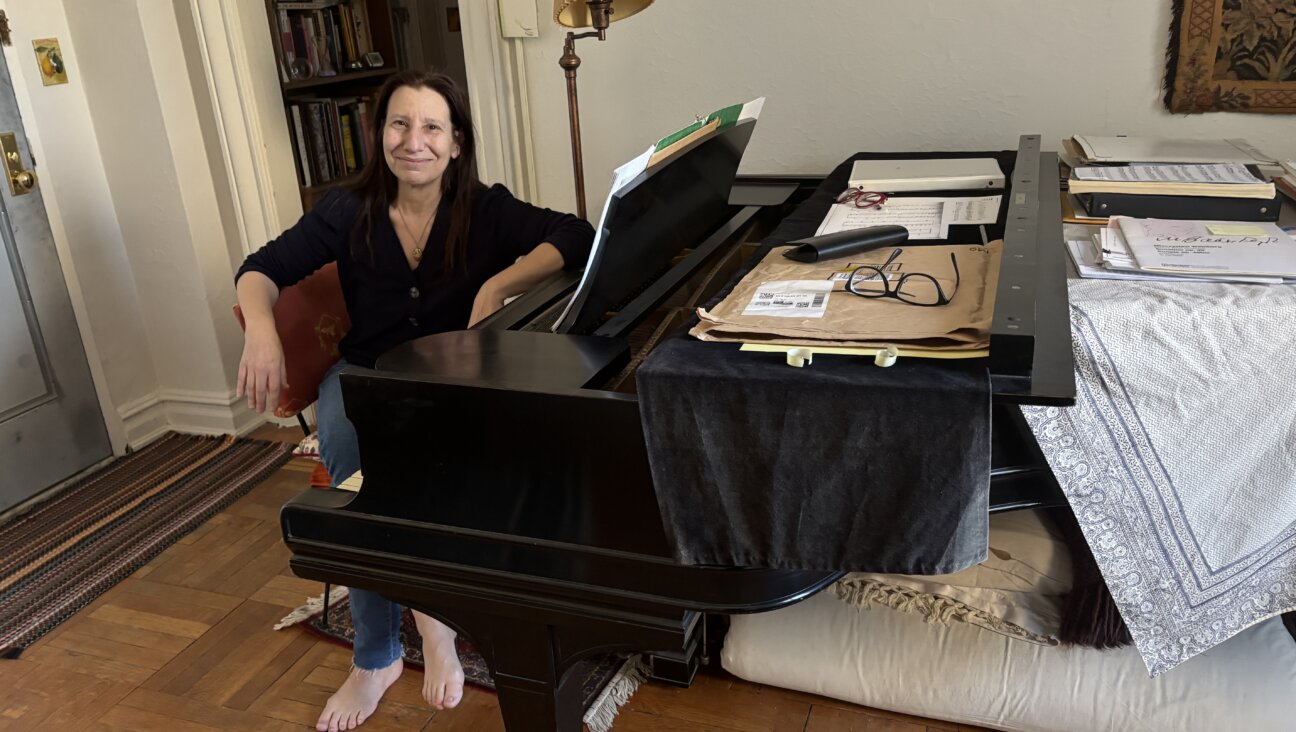Are Haredi Women Taking Their Cues From Outkast?
Some ultra-Orthodox women are defiantly taking seats at the back of Israeli buses in the name of what they see as religiously mandated gender-segregation. What’s more, as the Forward reports, some of them (or at least one of them) are comparing their actions to those of civil rights legend Rosa Parks.
Let’s set aside the moral question here, since I’m but a simple Jew and thus find such weighty matters painfully vexing. On the basic level of the facts, however, I just don’t understand how the Rosa Parks analogy applies: These haredi women want to sit at the back of the bus. Rosa Parks, of course, refused to give up her seat at the back of the bus. But, it seems safe to say, she didn’t particularly want to be relegated to the rear of the bus, and her brave act of defiance gave birth to a movement that eventually put an end to racially segregated seating in public transportation.
This leads me to believe that perhaps these haredi women are not, in fact, motivated by the example of Rosa Parks, the civil rights icon, but rather by “Rosa Parks,” the hit song by the Atlanta hip-hop outfit Outkast. That song, of course, features a chorus that urges, “Ah ha, hush that fuss/Everybody move to the back of the bus.”
I only hope that these haredi path-breakers don’t now try to implement the second half of the song’s chorus: “Do you wanna bump and slump with us/We the type of people make the club get crunk.” In any case, they should be aware that Outkast was sued over its song on behalf of (the since departed) Parks, and so they may want to consult an attorney as a precautionary measure.
But that’s just my own personal theory. You can decide for yourselves which Rosa Parks they’re emulating by watching a pair of videos. Be forewarned, however, that the first video contains some language that may be offensive to many viewers, while the second video contains a moving depiction of personal courage.
The Forward is free to read, but it isn’t free to produce

I hope you appreciated this article. Before you go, I’d like to ask you to please support the Forward.
Now more than ever, American Jews need independent news they can trust, with reporting driven by truth, not ideology. We serve you, not any ideological agenda.
At a time when other newsrooms are closing or cutting back, the Forward has removed its paywall and invested additional resources to report on the ground from Israel and around the U.S. on the impact of the war, rising antisemitism and polarized discourse.
This is a great time to support independent Jewish journalism you rely on. Make a gift today!
— Rachel Fishman Feddersen, Publisher and CEO
Support our mission to tell the Jewish story fully and fairly.
Most Popular
- 1

Fast Forward Ye debuts ‘Heil Hitler’ music video that includes a sample of a Hitler speech
- 2

Opinion It looks like Israel totally underestimated Trump
- 3

Culture Cardinals are Catholic, not Jewish — so why do they all wear yarmulkes?
- 4

Fast Forward Student suspended for ‘F— the Jews’ video defends himself on antisemitic podcast
In Case You Missed It
-

Opinion It looks like Israel totally underestimated Trump
-

Fast Forward Betar ‘almost exclusively triggered’ UMass student detention, judge says
-

Fast Forward ‘Honey, he’s had enough of you’: Trump’s Middle East moves increasingly appear to sideline Israel
-

Fast Forward Yeshiva University rescinds approval for LGBTQ+ student club
-
Shop the Forward Store
100% of profits support our journalism
Republish This Story
Please read before republishing
We’re happy to make this story available to republish for free, unless it originated with JTA, Haaretz or another publication (as indicated on the article) and as long as you follow our guidelines.
You must comply with the following:
- Credit the Forward
- Retain our pixel
- Preserve our canonical link in Google search
- Add a noindex tag in Google search
See our full guidelines for more information, and this guide for detail about canonical URLs.
To republish, copy the HTML by clicking on the yellow button to the right; it includes our tracking pixel, all paragraph styles and hyperlinks, the author byline and credit to the Forward. It does not include images; to avoid copyright violations, you must add them manually, following our guidelines. Please email us at [email protected], subject line “republish,” with any questions or to let us know what stories you’re picking up.















